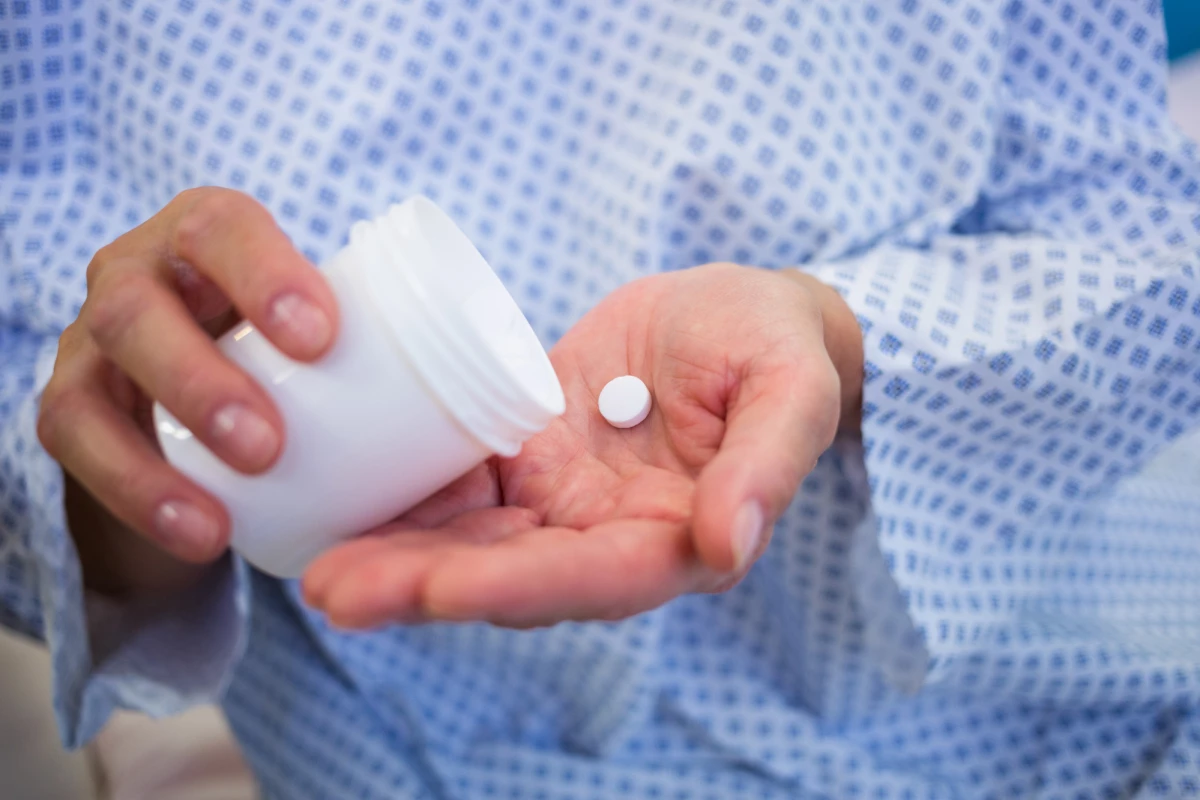Pharmaceutical company Merck has revealed the first data from its large Phase 3 trial of an oral antiviral treatment for COVID-19. The interim results show the treatment reduces a person’s risk of hospitalization or death from COVID-19 by 50 percent when taken within five days of symptoms appearing.
From vaccines to monoclonal antibodies, an extraordinary array of COVID-19 therapies have been developed over the past 18 months. While the pandemic is far from over, doctors are certainly better equipped than ever to fight this novel coronavirus, but there is one big missing link in their current toolkit – a pill that can be taken at home at the earliest sign of coronavirus infection.
Merck’s oral COVID-19 drug is called molnupiravir. The drug had been in development for several years before the pandemic as an antiviral agent targeting RNA viruses, with a primary focus on influenza.
In late 2019 the drug was ready for initial human trials targeting influenza, but when SARS-CoV-2 appeared all research focus shifted to whether molnupiravir would work against coronaviruses. In May 2020 pharma giant Merck stepped in to accelerate clinical trials and by October a large Phase 2/3 began, spanning over 20 countries.
The trial was designed to find out if molnupiravir reduces the risk of hospitalization or death in patients at high-risk of severe COVID-19. Patients in the trial were given a five-day course of the oral drug, beginning within five days of their symptoms initially appearing.
In early August an independent data monitoring board discontinued the trial due to positive data. At the point of the trial halting, 90 percent of the intended 1,550 total cohort had been recruited. A recent press release from Merck offers preliminary data from the first 775 patients recruited in the trial.
The drug was found to reduce rates of hospitalization or death by 50 percent compared to placebo. Only 28 out of the 385 patients taking molnupiravir ended up in hospital with COVID-19, compared to 53 of the 377 patients in the placebo group. Even more significantly, none of the hospitalized molnupiravir patients died, compared to eight deaths in the placebo group.
Simon Clarke, a cellular microbiologist from the University of Reading, says these results seem extremely promising. But as the full trial data is yet to be published it is unclear if this drug will be suitable for everyone. The interim data from Merck points out no adverse effects have been detected in the cohort trialled, however, Clarke says there is still plenty to learn about how this drug affects different people.
“This drug works by causing the machinery that reproduces Covid-19’s genetic material to make mistakes, thereby stopping effective replication,” explains Clarke. “That mode of action could cause problems with our own cells, and while reports are that the drug is well tolerated, we still don’t have full details of any side effects.”
Robert Davis, CEO of Merck, is confident the trial results are sound and says the company plans to submit an emergency use authorization to the US Food and Drug Administration (FDA) very soon. The US government has already pre-ordered 1.7 million courses of the drug.
“With these compelling results, we are optimistic that molnupiravir can become an important medicine as part of the global effort to fight the pandemic and will add to Merck’s unique legacy of bringing forward breakthroughs in infectious diseases when they are needed most,” says Davis. “Consistent with Merck’s unwavering commitment to save and improve lives, we will continue to work with regulatory agencies on our applications and do everything we can to bring molnupiravir to patients as quickly as possible.”
It is currently estimated a five-day course of molnupiravir will cost around US$700. Merck says it will implement a tiered pricing policy to make sure the drug is accessible to low-income countries.
Peter English, former chair of the British Medical Association’s Public Health Medicine Committee, says for a drug like molnupiravir to be useful it needs to be cheap and, since the drug is only helpful if administered soon after initial infection, there must be good testing strategies in place to catch cases at the earliest opportunity.
“In my opinion, these drugs might have a role IF you can first identify people at risk of more serious disease,” says English. “Unless an antiviral medication could be made so cheap and so safe that it can be used “on spec” by people who might have Covid-19, they are unlikely to be widely useful.”
Source: Merck




